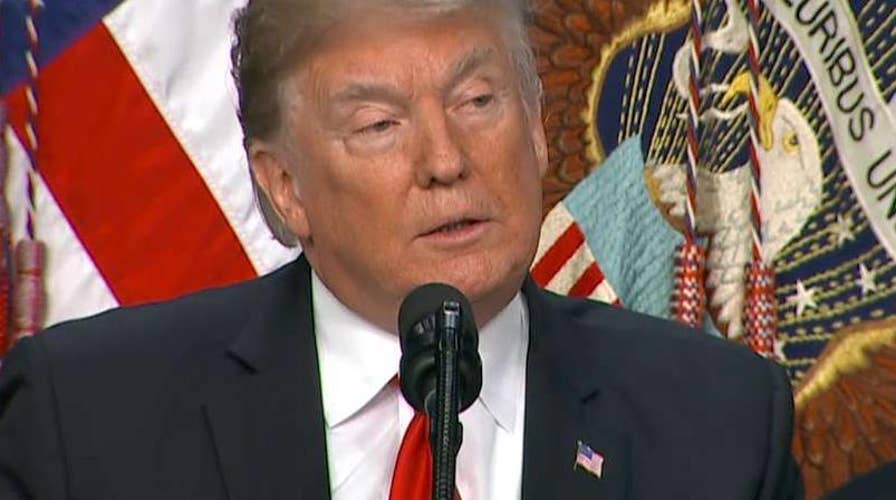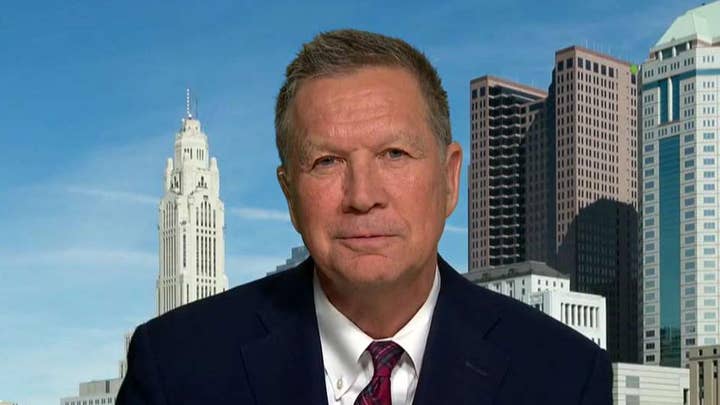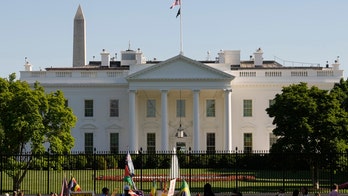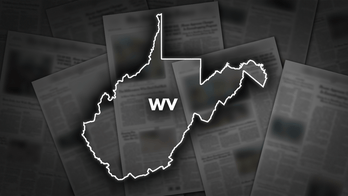Trump: This is not merely my campaign promise, it's the promise every lawmaker made to protect US
President Trump speaks amid spending bill showdown, asking lawmakers to fund the border wall.
Republican officials in New Hampshire and South Carolina – both early-voting states in the presidential nominating season – are openly considering whether to overhaul their primary rules for the benefit of President Trump.
In New Hampshire, which holds the first-in-the-nation primary, some state GOP lawmakers want to change the so-called “neutrality” rules that forbid state party officials from endorsing candidates ahead of that contest.
State Reps. Bruce Breton and Fred Doucette both plan to press the issue at an upcoming meeting of the New Hampshire GOP on Jan. 26, when the party votes on new officers and any new proposed bylaws. Breton, who had flirted with running for vice chairman of the state GOP, said he even reconsidered his bid so he could ensure his continued support for Trump ahead of the primary.
But he added that he will continue to push the issue at the party meeting.
“It is my strong belief that those bylaws should be changed to reflect that the NHGOP will support an incumbent president,” Breton told Fox News. “It is a logical solution to what I see as a deeply flawed portion of the bylaws.”
Breton added that he consulted on the decision to withdraw from the vice chairman race with Corey Lewandowski, Trump’s former campaign manager and a New Hampshire native.
The deadline to send a bylaw proposal is midnight on New Year’s Eve. It would then need a two-thirds vote of the state committee to pass, an uphill climb.
Republican operatives in New Hampshire say the change is unlikely.
Stephen Stepanek, who is running for state GOP chairman and was an early Trump supporter, has defended the “neutrality” provision – and said the party will remain neutral ahead of the primary if he wins the chairmanship.
The discussion in New Hampshire comes as South Carolina Republicans reportedly consider canceling their primary altogether. South Carolina GOP Chairman Drew McKissick argued he doesn’t anticipate a challenge to the president, and therefore the party may not need a primary.
“We have complete autonomy and flexibility in either direction,” McKissick told the Washington Examiner.
Unlike New Hampshire’s contest, the first-in-the-South primary is under the control of the party rather than the state, so the GOP could cancel it if they want.
McKissick added that the state party executive committee hasn’t had formal discussions about the primary for the 2020 race but did not rule out nixing it.
Whether Trump will or will not face a primary challenger remains to be seen.
The main name being floated as a possible intra-party competitor to Trump is outgoing Ohio Gov. John Kasich, who ran against Trump in the 2016 primary. Kasich has made a few trips to New Hampshire in the past couple of months, and operatives say he still has a good political network in the state.
“He has a lot of friends here,” said Jim Merrill, a longtime Republican strategist in New Hampshire who worked for Sen. Marco Rubio’s presidential bid in 2016. Merrill acknowledged that even with some name identification, Kasich would face an uphill climb against the incumbent president.
“If he decides to run, he’d certainly be an underdog in the primary,” said Merrill. “He’d have to come up and make his case.”
Kasich has been ambiguous about his intention to run despite his multiple visits to the state.
“I don’t want to waste anybody’s time if there’s not a clear path to having a major impact,” Kasich told Fox News in November during a trip to the Granite State.
Given the difficulties facing any potential GOP primary challenger, Merrill questioned the need to blunt the competition with primary rule changes: “I would say to the president, what are you afraid of?”






